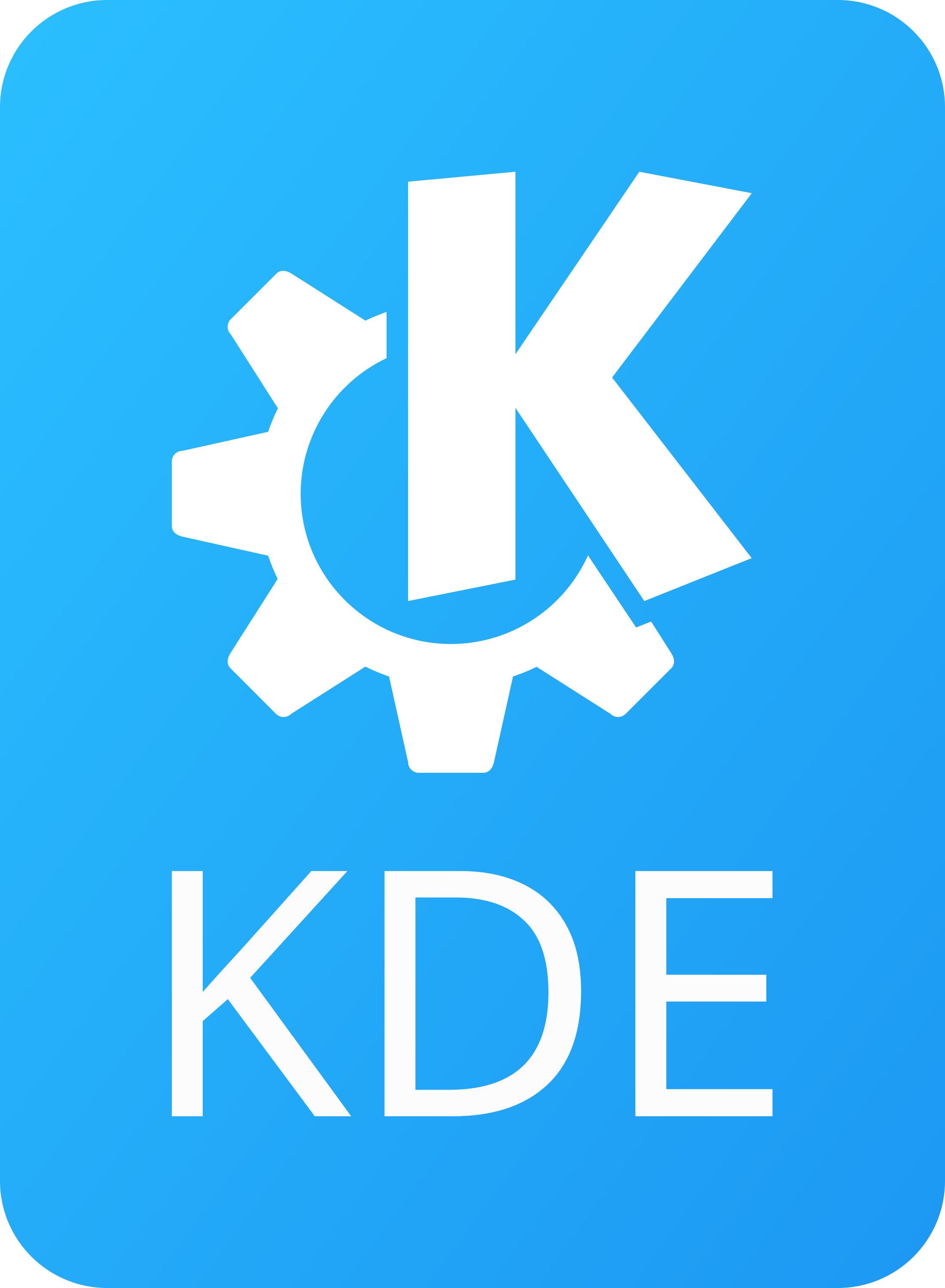Fedora KDE Special Interest Group
Mission
The KDE SIG (Special Interest Group) is a group of Fedora contributors that maintain KDE packages in Fedora. Their mission is to provide high-quality, usable KDE software packages to Fedora users and developers and to support one another in maintaining those packages.
Fedora KDE Spin
The Fedora KDE SIG played an integral role in creating the Fedora 7 KDE-Live spin and continues this work for subsequent Fedora releases:
KDE changes in previous releases
For Fedora 8 and further, it will also be central in integrating KDE 4:
- KDE 4 Development Platform (Fedora 7 updates and Fedora 8)
- Releases/FeatureKDE4 (Fedora 9 and beyond, full KDE 4 desktop workspace)
- SIGs/KDE/Update policy
Fedora 10 and further:
- Fedora KDE branding (Plasma, desktop, etc.)
- Features/KDE42 (Fedora 11)
- Fedora KDE spin page content (Fedora 12)
Fedora 13:
- list of planned KDE-specific features
Fedora 15:
Fedora 20:
Fedora 20 21:
Fedora 22:
References
Participants
- Than Ngo
- RexDieter
- Kevin Kofler
- SebastianVahl
- ArthurPemberton
- LaithJuwaidah
- MaryEllenFoster
- Lukáš Tinkl
- StevenParrish
- ShawnStarr
- Ben Boeckel
- Nigel Jones
- Lorenzo Villani
- Klaatu
- Jaroslav Řezník
- Sven Lankes
- Juha Tuomala
- Angel
- JerryAmundson
- Adam Miller
- Thomas Janssen
- Shaun Mallette
- Rares Aioanei
- Marco Crosio
- Wolnei Cândido Tomazelli Junior
- Todd
- Eike Hein
- Radek Nováček
- Pavel Mynarsky
- Robin 'cheese' Lee (LI Rui Bin)
- Magnus Tuominen
- Helio Chissini de Castro
- Dmitrij S. Kryzhevich
- Athmane Madjoudj
- Minh Ngo
- Siddharth Sharma
- Jayson Rowe
- Joseph Marrero
- Martin Bříza
- Jan Grulich
- Dan Vrátil
- Gerald Cox
- Bryan Sutherland
- Sinny Kumari
- Dan Mossor
- Christian Dersch
- Andreas Christoforou
- Germano Massullo
- Wesley Otugo
- Kieran Moore
Joining the SIG
Joining the KDE SIG is as simple as being part of Fedora and having a love for KDE. Once you are a contributor to Fedora, you can join the SIG by adding your name above and communicating with the rest of the team in the usual Fedora channels .
How you can help
If you have no idea how to help us with providing a good and qualitative excellent release of KDE in Fedora here are some proposals where we need help:
- Packagers: There are so many interesting packages that are not yet packaged for Fedora. Package it to improve the user experience.
- Reviewers: Only a few persons are doing the kde-related reviews. Help us reviewing so that more packages could be included.
- Testers: If you love KDE use the development version or the updates-testing repository and report bugs, bugs, bugs, request enhancements or features. We need your feedback to improve KDE. See the testing page for things to test.
- Bugs: Become a BugZapper and help us with kde-related bugs.
- Documentation writers: The documentation (esp. the DesktopUserGuide ) is GNOME-centered. Help us to provide an equivalent for KDE.
- Release Notes: The few people that are working on the new KDE-Spin are quite busy with development issues. If you want to help us in writing the release notes for the next version of Fedora we would give you all the info you need.
- Wiki: Maintain http://fedoraproject.org/wiki/KDE and keep it updated with end user information.
- Artists: To provide a matching theme for nodoka-theme (GTK2 and also metacity)
IRC
Meetings
There will be informal KDE SIG meetings in the #fedora-meeting channel every
- Tuesday at 15:00 UTC. Rex Dieter, Than Ngo, Lukáš Tinkl, Kevin Kofler, Steven Parrish, Jaroslav Řezník, Jan Grulich
For more information about the past and upcoming meetings please see the meetings subpage: KDE/Meetings
IRC Channel
Besides the KDE SIG meetings there is also existing a freenode channel for developers and users of KDE in Fedora: #fedora-kde[?]
Programming Tasks
Since Fedora strives to release software on the leading edge we often have to do programming work upstream in order to get things to work together. This can range from diagnosing and fixing bugs that upstream is not yet aware of to porting applications to a brand new framework. Please visit the Programming Wishlist for a list of items that need programmer attention.
Fedora Package Collection
Package Requests
- This section has moved to SIGs/KDE/Packaging/Requests
Best Practices
- For proper Requires:, consider using before the
%descriptionsection this code:
%{?_kde4_macros_api:Requires: kde4-macros(api) = %{_kde4_macros_api} }
- Here are some example
%buildand%installsections:
%build
mkdir %{_target_platform}
pushd %{_target_platform}
%{cmake_kde4} ..
popd
make %{?_smp_mflags} -C %{_target_platform}
%install
make install/fast DESTDIR=%{buildroot} -C %{_target_platform}
- In the
%filesyou can use at least the following macros:
%{_kde4_appsdir}
%{_kde4_bindir}
%{_kde4_configdir}
%{_kde4_datadir}
%{_kde4_docdir}
%{_kde4_iconsdir}
%{_kde4_includedir}
%{_kde4_libdir}
- You can use the sample kde4_foo.spec as a template.

